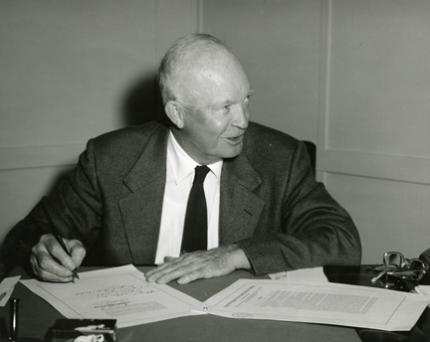 SKC Films Library SKC Films Library |
|
|
| SKC Films Library >> American History >> United States: General History and Description >> Early 20th Century, 1901-1961 >> Dwight D. Eisenhower's Administration, 1953-1961 |
Civil Rights Act of 1957 On September 9, 1957, President Dwight Eisenhower signed the first workable civil rights legislation to be passed since the reconstruction period. The bill created a Federal Civil Rights Commission which was to take two years to study and recommend further legislation. The commission, whose members was subject to Senate confirmation, was to have the power to subpoena witnesses. The bill also provided for a new Assistant Attorney General to handle all civil rights activities and gave the Department of Justice new powers to protect the right to vote. One of those new powers allowed federal prosecutors to get an injunction, with or without the victim's consent, against a person who tries to stop a qualified voter from voting. The person who refuses to obey the injunction may be tried and jailed for civil contempt. Trial is held by a federal judge sitting without a jury. The President signed the bill at the U.S. Naval Base at Newport, Rhode Island, where he was vacationing.
SEE ALSO |
| SKC Films Library >> American
History >> United States:
General History and Description
>> Early
20th Century, 1901-1961
>> Dwight
D. Eisenhower's Administration, 1953-1961 This page was last updated on April 12, 2017. |
